Call for ensuring safe internet for the Youth
Published:
2021-12-31 09:15:59 BdST
Update:
2024-04-25 17:22:38 BdST
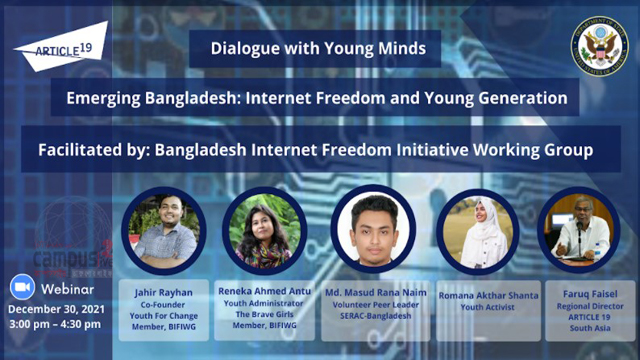
IT Live: The Bangladesh Internet Freedom Initiative Working Group (BIFIWG) held a virtual dialogue with the representatives of the young generation to get their views on the prospects and risks of the internet in Bangladesh and how to ensure a safe internet for them. Apart from the youth, representatives of various civil society organizations, digital rights activists, cyber experts and journalists attended the webinar titled ‘Emerging Bangladesh: Internet Freedom and the Young Generation’. International human rights organization ARTICLE supported in organizing this awareness raising event.
In the webinar, young speakers emphasized on the importance of practicing internet etiquette and digital literacy from the family level to ensure a safe internet. They suggest that female members of the family, especially mothers, need to be informed about awareness and basic knowledge of the internet, as well as safe use and security of digital devices. At the same time, they feel that they need to be more vigilant and aware about the use of social media.
Jahir Rayhan, a member of the BIFIWG and co-founder of Youth for Change, Reneka Ahmed Antu, another member of the BIFIWG and admin of The Brave Girls, a Girls’ Digital Platform, Md. Masud Rana Naim, volunteer peer leader at SAREC-Bangladesh and Romana Akthar Shanta, a youth activist and project associate at DW Akademie Bangladesh, spoke among the representatives of the young generation at the webinar.
Jahir Rayhan, on behalf of the BIFIWG, presented some technical tips to deal with false information online. He said, ‘Awareness of the user is the most important factor in verifying the accuracy of information found on the internet. With posing a little awareness online, false information can easily be identified and countered.’
Reneka Ahmed Antu said, ‘The effects of the prevailing patriarchal mentality and social inequality are strongly felt in the world of internet as well. For this reason, access to the internet and its safe use for women, especially girls, adolescents and young women, on the internet in Bangladesh is much more difficult than their male counterpart.’
Md. Masud Rana Naim said, ‘Many young people think that social media is their personal space. We need to get out of this misconception. Young people need to be encouraged to act responsibly on public platforms for safe roaming on the internet.’
Romana Akthar Shanta said, ‘It is important to ensure the security of various accounts online to prevent harassment of women. This requires using strong passwords, enabling two-factor authentication for account security, and being careful when posting photos public.’
Faruq Faisel, regional director of ARTICLE 19 South Asia, said, ‘We need to ensure a safe, non-discriminatory and free internet for the youth in order to achieve the Sustainable Development Goals (SDGs). In this case, priority should be given to the people of the marginalized communities, especially the youth.’ Barrister Nazmus Saliheen, Barrister Syed Ejaz Kabir and Md. Taofiq Ahmed also spoke on behalf of the working group on the occasion.
Dhaka, 30 December (campuslive24.com)//AZ
Topic:


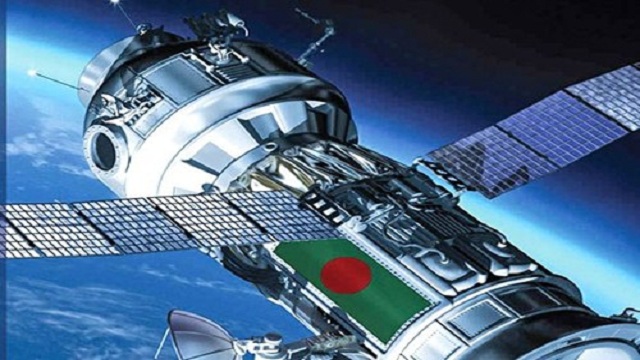


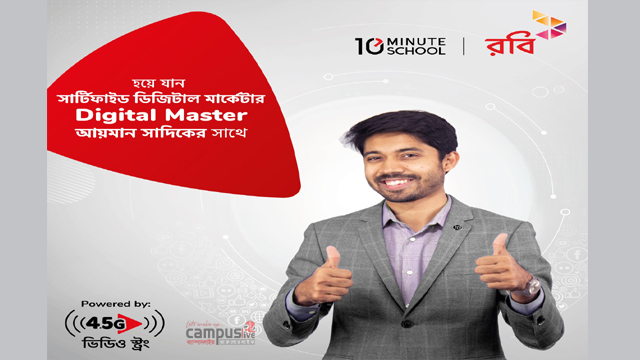
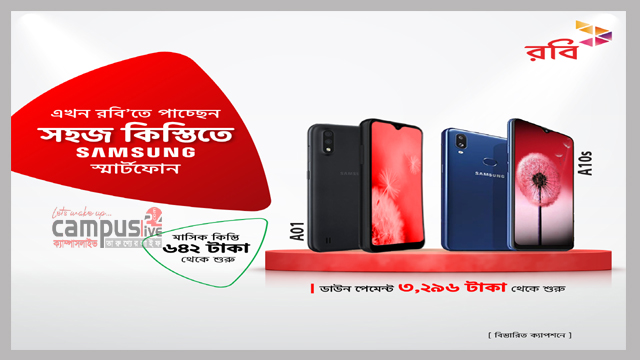
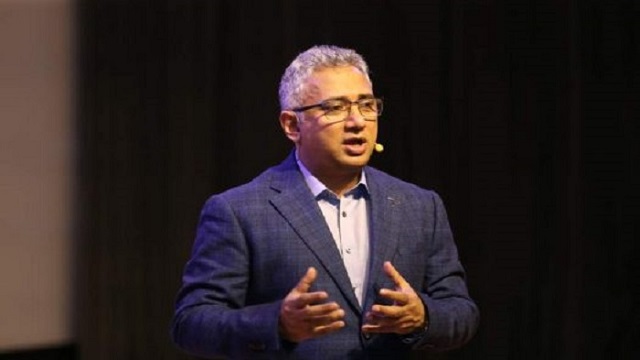
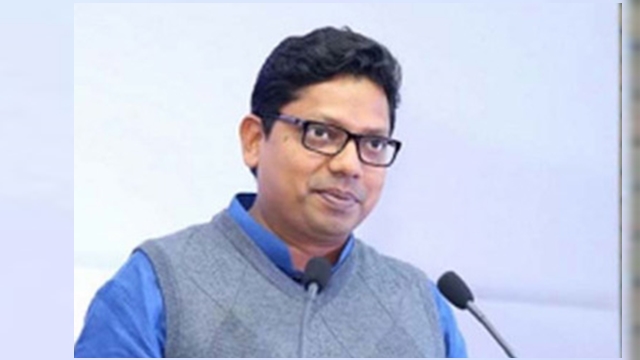

Share Your Valuable Comments: